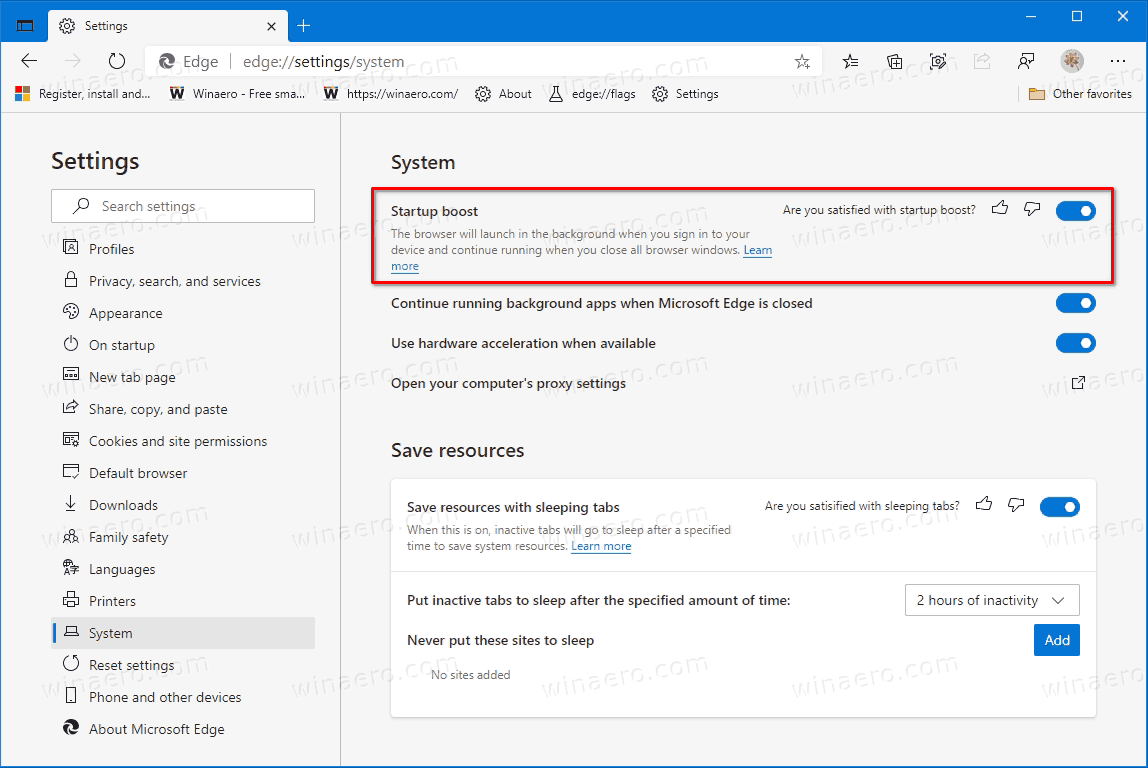With the release of Edge 88, Microsoft added a new feature called “Startup Boost.” It keeps several of Edge’s processes in the background with minimal resource footprint to help launch the browser significantly faster. Microsoft was rolling out this feature until the developers faced some unexpected issues. Due to these problems, Microsoft had to disable Startup Boost in all the channels.
Advertisеment
Microsoft has announced the temporary change on the Tech Community forum. The main reason for this is that Edge sometimes automatically reopens immediately after exiting. Other users see messages about reopening tabs with Startup Boost enabled.

It is worth mentioning that although disabled by default, Startup Boost is still available, so you can manually enable it in the settings. To do so, go to edge://settings/system and turn on the Startup Boost option. There are also thumbs up and thumbs down buttons to send feedback on how this feature works.
When the Startup Boost is enabled, Windows 10 may show a notification that Edge has been added to the startup and will run automatically when you sign-in to you user account. If you a running an Insider Preview build of Windows 10, you may receive such a notification.
The Startup Boost feature is exclusive to Edge on Windows (except servers and Windows 10X.) To get it working, you need a computer with 4 GB of RAM and Microsoft Edge set as your default browser. You can read a more detailed FAQ about Startup Boost on Microsoft’s Tech Community forum.
Recently, Microsoft fixed several issues with other Edge’s components, such as a prebuilt list of DNS over HTTPS providers. It is now available again in the Edge Beta, Dev, and Canary channels. Also, on Linux, users can now use Microsoft Accounts to sync data across Edge instances running on other platforms.
Support us
Winaero greatly relies on your support. You can help the site keep bringing you interesting and useful content and software by using these options:
